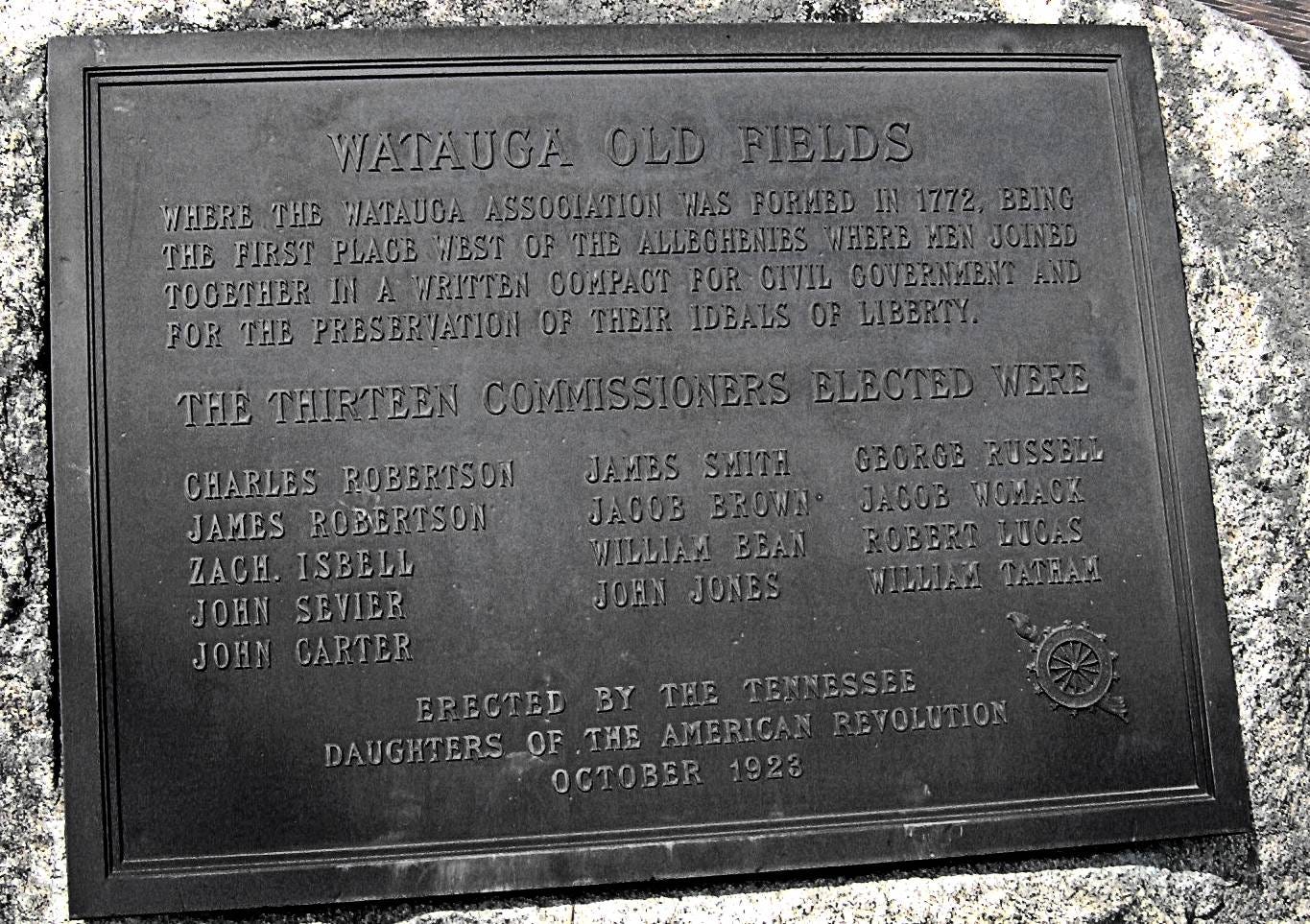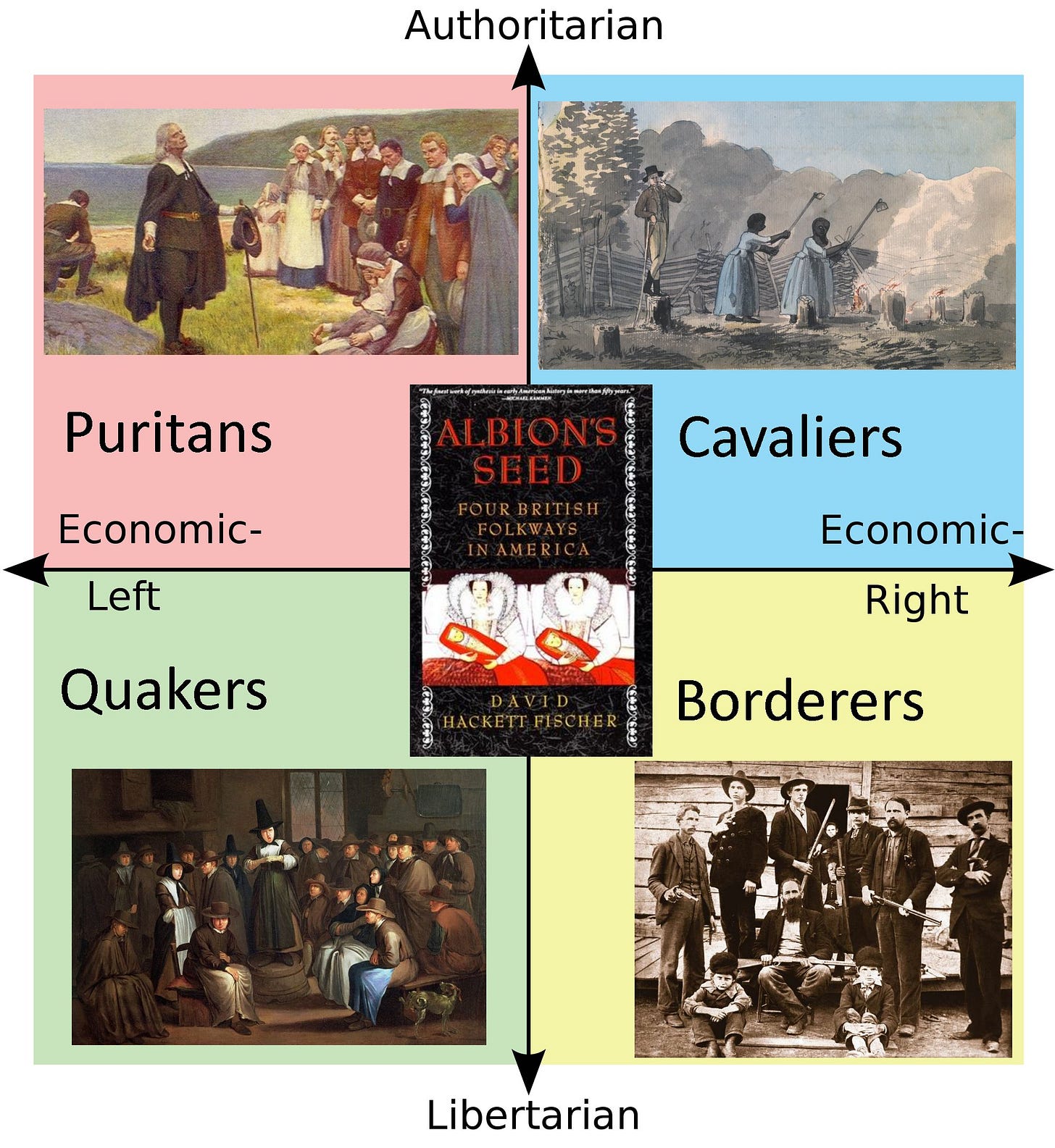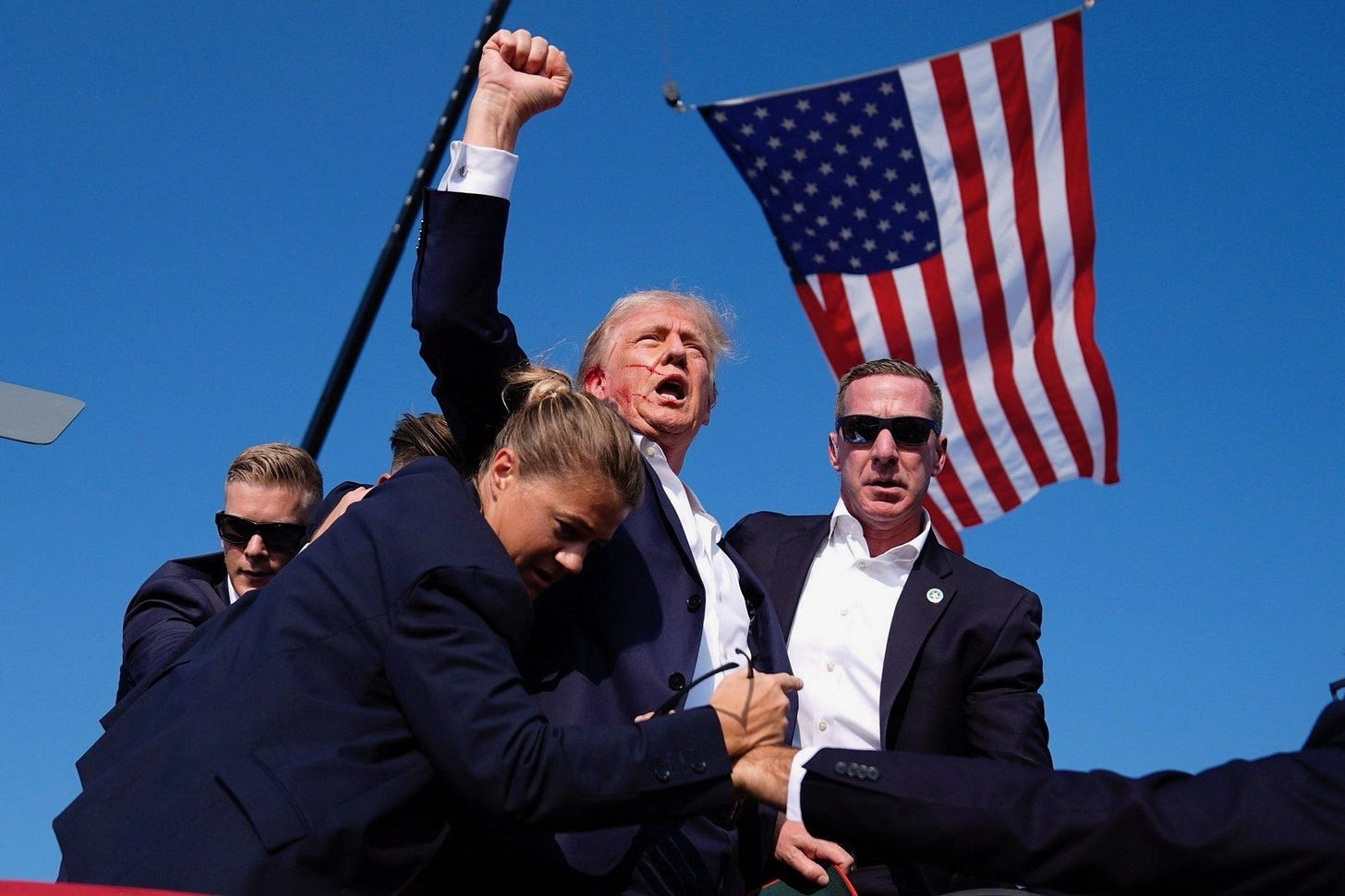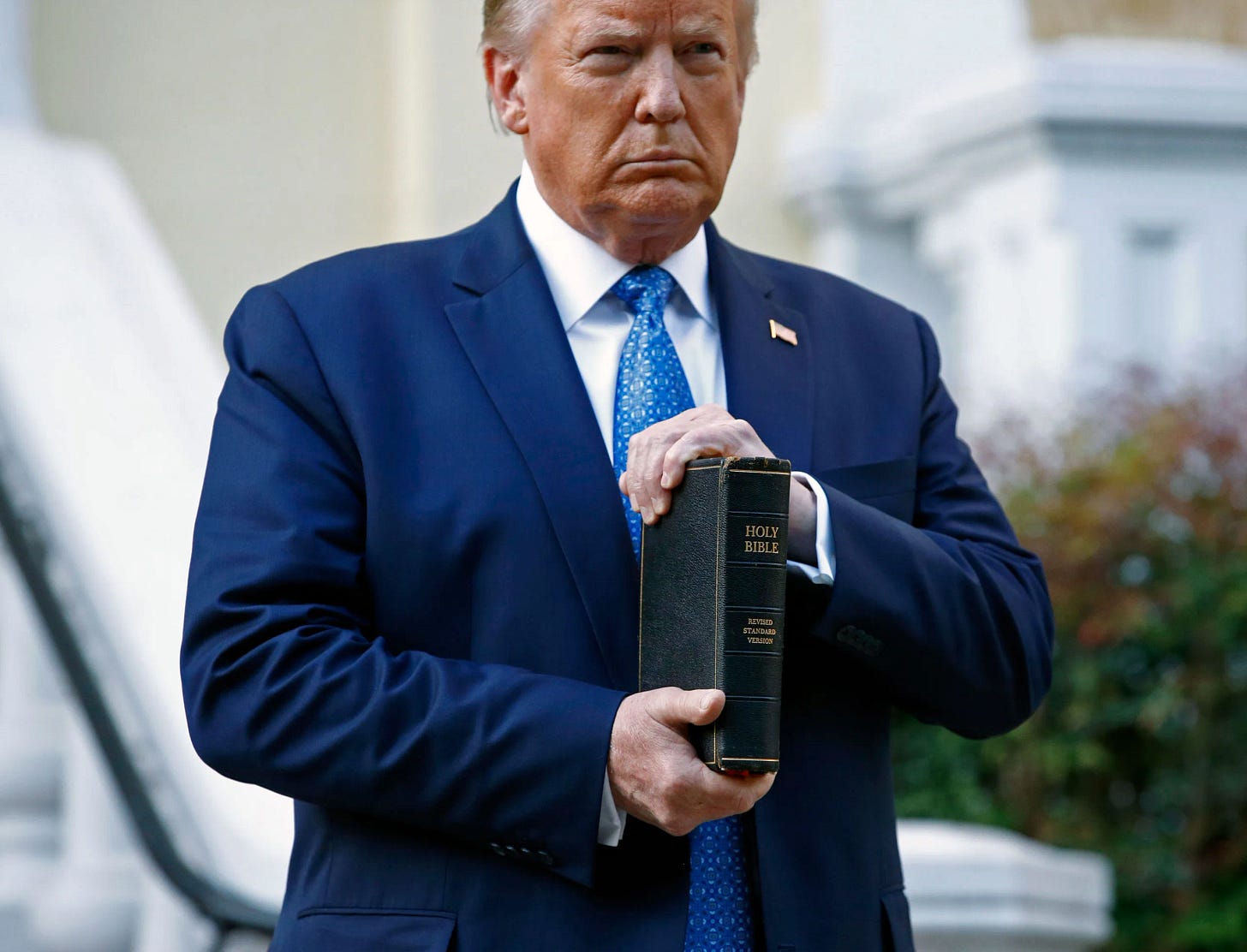I am eminently qualified to write this post since I come from (in the parlance of our strange times) heritage, settler, non-hyphenated, or old American stock—Very Authoritative Online Activists with X Accounts and Conference Speaking Slots must consider me a real American by their own restrictive and esoteric definitions! On one side, my ancestors were early 17th-century British subjects in the American Colonies; on the other, some of the first German Lutherans to settle in Pennsylvania in the early 18th century. My British ancestors helped form the Watauga Association government west of the Appalachians (thus inventing localism) and fought against their Redcoat overlords in the Battle of Kings Mountain (the theater of war in which “The Patriot” movie was set). President Theodore Roosevelt referred to the 13 Watauga men as the “first men of American birth to establish a free and independent community on the continent.”
The fancypants Colonial Anglican Christian Prince governor of Virginia was not impressed:
In 1774, Virginia governor Lord Dunmore called the Watauga Association a “dangerous example” of Americans forming a government “distinct from and independent of his majesty's authority.”
This was not our first trouble with Colonial Virginia magistrates. About 30 years earlier some of my people were fined for a) not frequenting the established Anglican church, and b) attending the established Anglican church in an apparent state of intoxication. As one of my former pastors said, “Maybe he had back trouble!” At any rate, these average British subjects would prove to have more in common with their wilder countrymen to the south and west of the Old Dominion. And that’s where they went—south and west.

The rest of my ancestors down the family trees seemed to have been the standard mix of Scots, Scots-Irish,1 Northern English and Yorkshiremen, regular Irish, Welsh, and Germans. Most would have fallen into David Hackett Fischer’s Borderlands and Backcountry settler grouping, including the “dissenting” Virginia folk who did not fit in with the Cavalier/Virginia group. Even my Pennsylvania Lutheran ancestors rapidly moved south and ended up in East Tennessee by the end of the 18th century, losing their Lutheranism as they went and marrying into the Scots-Irish Hillbilly culture.
My British ancestors rubbed shoulders with John Sevier (Watauga Association) and so did my decaying Lutheran kinfolk in what is now Sevier County, TN—home to Gatlinburg, Dollywood, and the world’s highest concentration of airbrushed t-shirt shops. At some point, the former Lutherans became baptist teetotalers, and they all moved west across Tennessee and got mixed together in the cotton fields and swamps of the Arkansas Delta. Some crept into the Ozark mountains; other crept out. They turned forest into farmland with mules and two-man saws. They loved to hunt and operated by a simple rule: If you can catch or kill it, you can fry it or make stew of it. And always make gravy and biscuits just to be on the safe side. Oh, and my mother’s grandparents lived just down the road from Johnny Cash’s homeplace. And my mother’s cousin dated Johnny’s youngest brother. I think I understand Scots-Irish (aka redneck and hillbilly) culture.
And for these reasons, I think I understand the appeal of that honorary hillbilly, Donald John Trump. Though his ancestors arrived quite late relative to my own (90-140 years ago), Trump has somehow captured the imagination of the Scots-Irish diaspora whose roots are hundreds of years deeper. And even though his family landed in the New York City area and mostly stuck there (his German grandfather’s couple of wild Gold Rush decades notwithstanding) he is rural and small-town America’s candidate of choice. And not just a candidate—he is a meme, a symbol, an avatar, a quasi-religious icon.
How is it that Trump has such hillbilly holler cred? Well, it seems pretty obvious that he (despite his gold-plated, chauffeur-driven city ways) is the embodiment (or at least an echo) of the Scots-Irish clan leader or Border Chieftain. He picks fights, takes offense, holds grudges, promises protection, settles scores, hits back, rewards loyalty,2 and talks smack. Blunt speech and a willingness to mix it up, shoot back, or even shoot first are valued qualities in hillbilly men and strong mountain women.3 Post-WW1 (and ever since) these hillbillies have come down from the mountains and spread out across the country, dominating middle, rural, and much of small-town America.
Manners, social niceties, strictly puritanical sexual mores, and other Christian ideals were often honored more in the breach among the clans of hardscrabble Scots and Britons. The same is true of many of Trump’s supporters. Areas settled (or invaded) by the children of the Scots-Irish have always been holdouts of traditional Christian morality and gospel music, but also the prime markets for Divorce Country since the 1960s and Bro Country since the 2000s. What outsiders call cognitive and moral dissonance many modern-day descendants of the Scots-Irish simply consider a normal life under the sun adapted to often harsh realities. Saturday night/Sunday morning contrasts are real and not confined to music.
Of course, the days of actual blood feuds are gone, but plenty of people still like the idea of a loyal leader willing to fire or take a bullet. Trump has now literally done the latter and may have evaded another ambush or two. He speaks not in poetry or fine argument but in words and gestures easily comprehended by common folk who project their half-formed hopes, aspirations, and prejudices on their brash leader. They like the idea of Trump more than the actual Trump; what he says is more important to them than what he does. His supporters distrust remote government, big companies, and big cities. And, having a complicated relationship with government, law enforcement, and cultural elites (just as Trump does) they sympathize with him and expect him to sympathize with them.
Trump’s mother was a Scot who grew up speaking Gaelic in the early 20th century. She was the British Isles’ equivalent of “white trash,” having born and raised poor in one of the harshest borderlands of Scotland, the Outer Hebrides islands, which were notable until recently as the last holdout of strict, dour sabbathkeeping. Coming to the USA the year the Great Depression began, she brought a preference for presbyterianism (albeit the Madison and Fifth Avenue variety). Her son was raised in mainline churches, and it seems doubtful that he picked up any real doctrine or devotion. He was a city boy who no one expected to become a hero in humble parts of the country where he would never live. Yet he would eventually invade flyover country via the one-way medium of TV, supermarket tabloid pages, or (for a few brief hours at a time) on the campaign trail. He would be loved but not known; trusted but not understood.
Something few know about Trump is that he is a teetotaler. Aversion to alcohol is something the wilder Border and Backwoods folk would not have understood, but that some of their more civilized and revivalist-influenced descendants can admire. This is not to say that Trump is never drunk: he often seems intoxicated by his idea of himself, by wealth and success, by verbal combat, by winning…so much winning. His Scottish mother, like many poor folk made good (and determined not to go back), developed a flair and flamboyance that he also picked up. His pompadour resembles nothing so much as the coif of a 1960s or 1970s country music or rockabilly star. If Trump had not existed, non-hyphenated Americans would have invented him. In, of course, they did invent him.
Since Scots-Irish-descended “real” Americans are likely to elect Trump for another swing at making America great again, those Christians among them might do well to pray that he would be brought to a recovery of his own ancestors’ more modest faith—a faith which directed them to something outside of themselves and their achievements and which directed their valor, loyalty, and words to higher ends. Praying to such an end would be fitting service to their beloved, flawed, ridiculous, entertaining chieftain.
For more on this incredible people group, see Jim Webb’s Born Fighting.
In this, he is even reminiscent of the “ring-giver” Viking kings who ravaged then colonized much of Scotland, Northern England, and Ireland—the places from which the Scots-Irish who settled America came. See Beowulf.
See the description of J.D. Vance’s “mamaw” in Hillbilly Elegy.








Excellent.